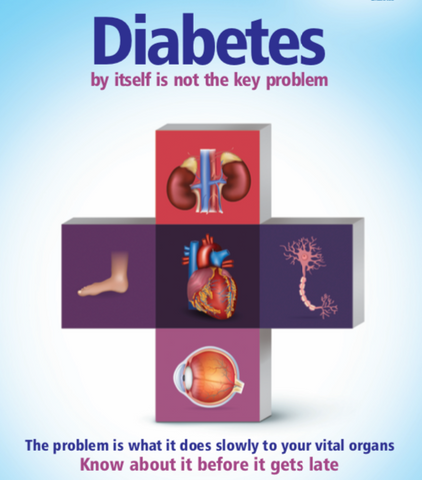Diabetes Metabolism Test
Test Parameters


About the Diabetes Metabolism Test
Diabetes implies uncontrolled insulin which leads to slow deterioration of the critical organs like the kidneys, liver, brain and more. Given the day-to-day schedules, it is frequent to forget monitoring the glucose levels. And even if monitored, there is no way available to simultaneously monitor its impact on your vital organs eyes, kidneys and nerves. A poorly managed diabetes may progressively lead to several fatal conditions which can be prevented.

Is Monitoring Glucose Levels good enough
Testing your glucose levels or monitoring your Hemoglobin A1c Tests is a good practice to maintain. But the early signals of vital organ deterioration can not be picked up by these tests. Only a specialized metabolic test can pick such information and help you manage your diabetes better.
Can early signals of deterioration of vital organ be picked up ?
There are early “indicators” found in your urine and/or blood samples called as “metabolites”, which hold clue to several unanswered questions about the status of your diabetes-related complications. The assessment of these metabolites provides a unique insight into an individual's cellular energy status, neuro metabolism, nutrient impacts and deficiencies.
- Diabetic Neuropathy
- Diabetic Cardiopathy
- Diabetic Nephropathy
- Diabetic Ketoacidosis
How does the early information helps me
The early information forewarns about the impending complications because of diabetes. It helps take preventive steps like, alteration (personalization) of your medication, improve the night drug regime or take other preventive steps well in time so that you may live with diabetes but not suffer because of it
Benefits of Diabetes Metabolism Test
- Identify whether your anti-diabetic drugs (OHA) are having harmful effects on you - like Lactic Acidosis, Vitamin B12 deficiency etc.
- Can identify drug-induced Liver dysfunction and therefore help “personalize” the medication to ensure that your liver is not harmed
- Prediction of visceral adiposity (leads to insulin resistance) at an early stage
- An early indication of impending ketoacidosis, diabetes-induced nutritional deficiencies
- Monitoring of key metabolic parameters which indicate the health status of heart, kidney, liver and brain.






